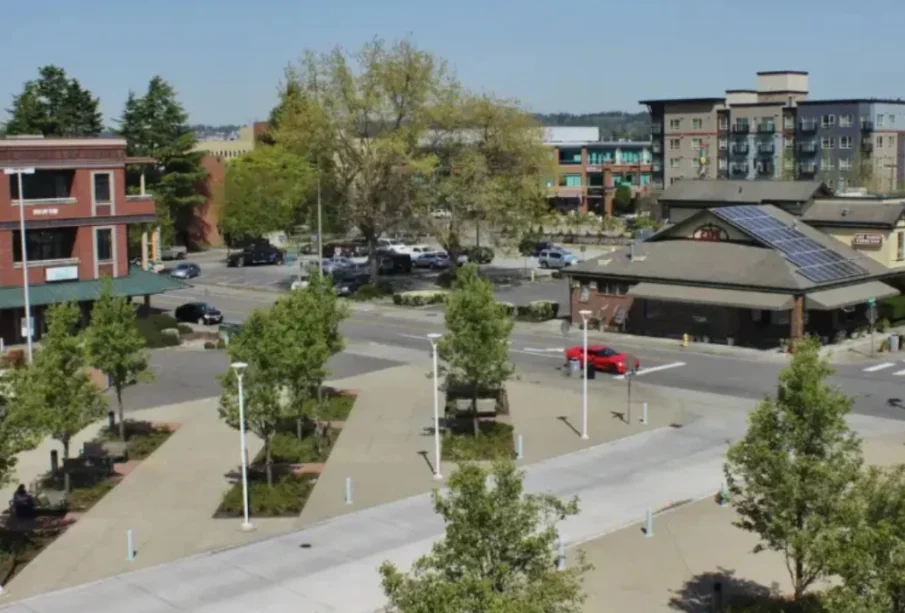How Auburn’s youth programs are transforming lives and shaping futures this year

Credit: SounderBruce
In 2025, Auburn is rising as a hub for innovative youth programs that are making a noticeable impact across King County. These initiatives are not only responding to the challenges young people face today but are setting new standards in youth engagement, education, and empowerment. As mental health concerns, educational gaps, and economic uncertainties grow nationwide, Auburn’s fresh and comprehensive approach to youth development stands out gaining attention for measurable success and bold community-driven strategies.
What’s fueling Auburn’s momentum? A unique blend of STEM education, leadership training, mental health support, and career readiness, all designed with a deep understanding of the community’s needs and diversity. This post explores the standout youth programs making headlines in Auburn today, revealing why they matter and how they shape promising futures for local youth.
Why Auburn’s Youth Programs Are Gaining Regional Acclaim
The youth of Auburn face many pressures common across the nation, from academic hurdles to social challenges. Yet Auburn’s programs differentiate themselves by embracing a holistic approach that prioritizes empowerment, inclusivity, and skill development.
Mia Hernandez, Director of Auburn Youth Services, explains:
“We aim not only to provide resources but to amplify youth voices, making sure programs evolve based on what kids and teens truly need.”
New data from the King County Department of Community and Human Services shows Auburn’s integrated youth services reduce dropout rates and increase engagement, particularly among underserved communities. This success draws interest from other cities interested in replicating Auburn’s model.
Spotlight on Auburn’s Leading Youth Initiatives
Several programs define Auburn’s innovative spirit by bridging education, mentorship, and community engagement:
Auburn STEM Pathways Initiative
This program elevates local youth through hands-on learning in science, technology, engineering, and math. Unique partnerships connect Auburn students with tech leaders from nearby Bellevue and Redmond, fostering exposure to careers many had thought out of reach.
- Focus areas include robotics competitions, coding bootcamps, and career exploration workshops.
- Collaborations with Boeing and Microsoft open pathways for internships and mentorship.
Youth Empowerment & Leadership Academy (YELA)
Designed to cultivate leadership and civic engagement among teens, YELA empowers youth to lead local projects that inspire positive community change.
- Participants organize environmental cleanups and art installations, building tangible leadership portfolios.
- Training in public speaking and event management prepares youth to advocate effectively.
Auburn Recreational Mentorship Program (ARMP)
With growing awareness of physical activity’s role in mental health, ARMP connects youth with adult mentors through sports and outdoor activities.
- The program promotes inclusivity, welcoming youth with disabilities and those from at-risk backgrounds.
- Recent funding has allowed expansion of after-school programs and summer camps.
Addressing Youth Mental Health Through Comprehensive Support
In line with national trends spotlighting youth mental health, Auburn’s youth programs integrate strong mental wellness components.
- School counselors partner with youth organizations to establish safe environments.
- Programs include workshops on anxiety management, peer-to-peer support, and resilience building.
- The “Strong Minds” initiative offers free counseling and a helpline for youth aged 12–18.
Hernandez notes:
“Mental health support isn’t an add-on; it’s central to how we help young people thrive.”
This layered approach ensures Auburn youth have the resources to face today’s social and emotional challenges head-on.
Preparing Auburn Youth for Tomorrow’s Workforce
Youth unemployment and underemployment remain critical concerns. Auburn actively equips its young residents with skills and opportunities to thrive in a competitive job market.
- Internship programs expose students to sectors like technology, healthcare, and skilled trades.
- Resume and interview workshops build confidence and professionalism.
- Local businesses partner to provide apprenticeships, targeting equity for underserved groups.
The King County Workforce Development Council praises Auburn’s “inclusive and practical” employment pathways as models for the region.
The Role of Community and Families in Auburn’s Success
Auburn’s youth program achievements are deeply rooted in strong family and community collaboration.
- Regular forums include parents, youth, educators, and city officials to align goals.
- Volunteer opportunities connect community members to tutoring, mentorship, and program support.
- Partnerships with nonprofits and faith groups broaden outreach and resources.
This inclusive ecosystem extends beyond formal programs, embedding youth development into the city’s social core.
What’s Next for Auburn’s Youth Programs?
Looking ahead, Auburn plans to further innovate by:
- Expanding digital access to reach underserved neighborhoods.
- Launching new programs addressing climate education and social entrepreneurship.
- Increasing bilingual and culturally relevant programming to match the city’s diversity.
The city’s commitment to evolving youth services is a beacon for those invested in creating resilient, empowered future generations.
Auburn’s youth programs in 2025 demonstrate what’s possible when community collaboration meets innovative, comprehensive planning. By integrating education, mental health, leadership, and career readiness, they prepare young people not just to succeed but to lead. As these programs gain momentum, Auburn’s example shines as an inspiring model for King County and beyond.
FAQs on Auburn Youth Programs 2025
What makes Auburn youth programs stand out in 2025?
Auburn’s programs differentiate by blending STEM education, mental health support, leadership training, and career readiness with strong community involvement tailored for diverse youth populations.
How do Auburn youth programs support mental health?
They offer integrated counseling, peer support groups, resilience workshops, and access to dedicated helplines, addressing emotional well-being as central to youth development.
What career opportunities do Auburn youth programs provide?
Programs provide internships, apprenticeships, job skills workshops, and mentorship in key local industries, helping youth transition to meaningful employment.
How does the community contribute to Auburn’s youth initiatives?
Parents, community members, nonprofits, and local businesses actively participate through forums, volunteering, and partnerships, ensuring programs address real youth needs.
Are Auburn youth programs inclusive of all backgrounds?
Yes, they prioritize bilingual services, accessibility, and outreach to underrepresented groups, reflecting Auburn’s multicultural demographic makeup.







